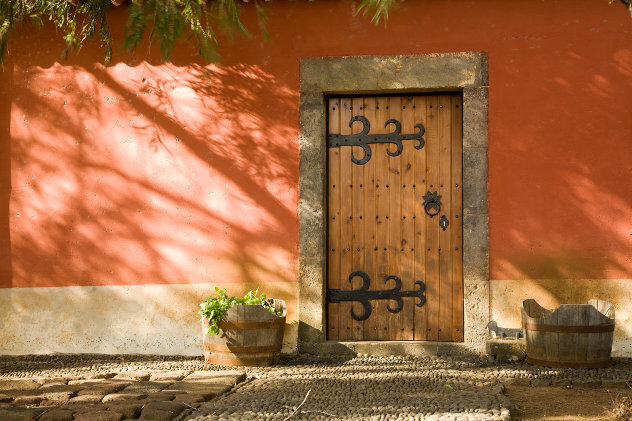Your translator is the linchpin in the transfer
Housesinspain.com, Thursday, 2 January 2014

On signing the deed at the Spanish notary, it’s essential to understand the words.
The process, therefore, pivots around the translator.
It is the translator who guides you through the whole process of the property transfer at the notary. On him you must blindly trust. He is the linchpin in the transfer.
Everything starts with your translator.
The translator is very important, especially a translator who is adept at translating notarial deeds; someone who tells you exactly what is in the deed without giving it colour. Then, if everything is in order when you go to the notary, you can safely sign the deed.
Selling broker as a translator.
The translator at the notary is also usually the selling broker, or possibly the translation is done by the consultant (gestor) designated by the broker. This is almost always the case. Will you ask yourself the question – Can I blindly trust him?
All items in the deed are important.
All items in the deed are important. Never be distracted by the note: “this piece is not important”. The description of the property is one of those issues that is often earmarked as unimportant. The description of the property and the actual property must match 100% of the purchase agreement with what you have seen and bought.
Here, the translation is often carelessly handled without care and dismissed as not very important.
Prepare yourself well.
Question the concept deed.
Prepare yourself well. Let your broker or advisor (gestor) read the concept deed a few days before the transfer. You can then question the contents in a quiet environment without time constraints.
Pre-inquire with notary.
Don’t arrive at the notary at the last minute: it is too important. Spanish notaries have launched a campaign for homebuyers to point out that they also attach great importance to be well informed beforehand. .
The notary is not responsible for translation.
The notary does his job correctly. He will undoubtedly ask you if there are any questions and if you have understood everything. A note in the deed always includes that the translator is your choice, and you understand everything. Thus, the notary is not responsible for the quality of the translation.
The responsibility lies with the buyer.
If you do not understand something always ask. It’s better to ask a few additional questions than sign anything you do not understand. You have chosen the translator and your signature is binding.
A good translator is the hub around which everything turns.
Translating a deed at the notary is really little more than checking your passport number, name and address if the deed is well-written.
A good translator is the hub around which everything turns and essential for a successful property transfer.

On signing the deed at the Spanish notary, it’s essential to understand the words.
The process, therefore, pivots around the translator.
It is the translator who guides you through the whole process of the property transfer at the notary. On him you must blindly trust. He is the linchpin in the transfer.
Everything starts with your translator.
The translator is very important, especially a translator who is adept at translating notarial deeds; someone who tells you exactly what is in the deed without giving it colour. Then, if everything is in order when you go to the notary, you can safely sign the deed.
Selling broker as a translator.
The translator at the notary is also usually the selling broker, or possibly the translation is done by the consultant (gestor) designated by the broker. This is almost always the case. Will you ask yourself the question – Can I blindly trust him?
All items in the deed are important.
All items in the deed are important. Never be distracted by the note: “this piece is not important”. The description of the property is one of those issues that is often earmarked as unimportant. The description of the property and the actual property must match 100% of the purchase agreement with what you have seen and bought.
Here, the translation is often carelessly handled without care and dismissed as not very important.
Prepare yourself well.
Question the concept deed.
Prepare yourself well. Let your broker or advisor (gestor) read the concept deed a few days before the transfer. You can then question the contents in a quiet environment without time constraints.
Pre-inquire with notary.
Don’t arrive at the notary at the last minute: it is too important. Spanish notaries have launched a campaign for homebuyers to point out that they also attach great importance to be well informed beforehand. .
The notary is not responsible for translation.
The notary does his job correctly. He will undoubtedly ask you if there are any questions and if you have understood everything. A note in the deed always includes that the translator is your choice, and you understand everything. Thus, the notary is not responsible for the quality of the translation.
The responsibility lies with the buyer.
If you do not understand something always ask. It’s better to ask a few additional questions than sign anything you do not understand. You have chosen the translator and your signature is binding.
A good translator is the hub around which everything turns.
Translating a deed at the notary is really little more than checking your passport number, name and address if the deed is well-written.
A good translator is the hub around which everything turns and essential for a successful property transfer.

Spanish property for sale. Appartements, villas and housesfor sale in Spain Costa del Sol, Costa Brava and Costa Blanca. For sale by owner and by agent.
 The Spanish housing market is currently a buyer's market. It is may be attractive to rent your home temporarily. The advice is : don’t do it. With
tenants, you can’t transfer the property directly to the new owners. And you may have to deal with troublesome tenants. If you rent your home, let a
lawyer draw up the contract and add clauses to the contract in order to avoid problems.
The Spanish housing market is currently a buyer's market. It is may be attractive to rent your home temporarily. The advice is : don’t do it. With
tenants, you can’t transfer the property directly to the new owners. And you may have to deal with troublesome tenants. If you rent your home, let a
lawyer draw up the contract and add clauses to the contract in order to avoid problems. 